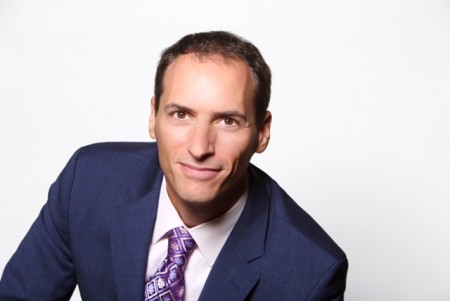CEO discusses the disrupting, displacing and deconstructing of legal services

Ari Kaplan. Photo by Lauren Hillary.
Ari Kaplan recently spoke with Varun Mehta, the new CEO of Factor, formerly Axiom Managed Solutions, an organization focused on performing complex legal work at scale.
Ari Kaplan: Tell us about your background and your role at Factor.
Varun Mehta: I was on the founding team of the Clutch Group, which was largely focused on litigation and investigations for financial services and insurance companies. We merged that company with Morae Global, and since then, I have spent time evaluating early-stage legal technology businesses to make either personal or syndicated investments. I have also helped various private equity firms understand the legal services market as a whole. Given my range of perspectives in delivery, sales, executive management, investing and advising, I am excited to assume this new role as CEO of Factor.
Ari Kaplan: What is Factor’s primary focus?
Varun Mehta: Factor has spent the last decade building a managed services organization that is focused on three areas. First, large-scale, medium-complexity contract negotiation for some of the biggest companies in the world, including projects in capital markets, technology and vendor buy- and sell-side contracts in the broader markets, and NDAs. Second, managing corporate entities. And, third, event-based contract or document re-papering, such as moving off of the LIBOR standard. Axiom has provided great lawyers to the organizations it serves. Factor is focused on providing managed, complex legal work at scale.
Ari Kaplan: Is it necessary for a “new law” company to concentrate on a particular service or technology to be successful?
 Varun Mehta. Photo courtesy of Factor.
Varun Mehta. Photo courtesy of Factor.
Varun Mehta: If you look at the entire alternative legal services or “new law” sector, the last 10 years were focused on taking the bottom quartile of work away from law firms, or that staffing model, and moving it into centers of excellence. Now, that low complexity work has a great deal of competition in a good way, but as general counsel look for the next iteration of change and a new generation of differentiation, they want companies with a proven track record for performing complex legal work. I believe specialization is important. At the Clutch Group, for example, we focused on a few key industries and markets. Just as in-house counsel work with certain law firms for specific types of work, the alternative legal services market will experience the same selection process. Over the next decade, we are going to see disaggregation and re-bundling. If we really want to service Fortune 500 and Fortune 1000 companies around the globe, specialization will become increasingly important.
Ari Kaplan: Is Factor a technology company or a provider of services?
Varun Mehta: We are a tech-enabled services platform. Some in-house lawyers want to leverage new technology in their law departments, but a number are experiencing fatigue from discussions of blockchain, AI and machine learning, among other topics, because it is hard to understand the practical value of these applications. Factor has a proven track record of delivering high-quality work at scale, and in the next chapter of our business, we are adding more technology to serve as the conduit between the tools and the in-house teams. We want to help our clients understand why we use the tools in our stack and consider the array of available options, so they can make the right decisions.
Ari Kaplan: What is Factor disrupting, and who is it replacing in the buying cycle?
Varun Mehta: First, we are helping to upskill the lawyers within large companies, so they can focus on advising their businesses while we concentrate on the execution of the transactional work, elevating and escalating to them as required. Second, there will definitely be some displacement within the law firm world. While there is a tremendous amount of advisory value they add, I think of it as artisanal work. They are the Michelin chefs of our industry. Our goal, however, is to provide the same quality of work that big companies require and do that at scale using process, technology and subject matter experts. Third, when you look at large-scale events, whether it is LIBOR re-papering or a regulatory change like GDPR, our goal is to streamline staffing, consulting and project management to complement what law firms provide to give general counsel the confidence that each aspect of the work will be completed with the right level of experience. This is an area where we are already teaming up with great law firms, such as Allen & Overy, to identify the right fit-for-purpose use of our services that blends our expertise with theirs. There are areas where we are displacing or supplementing traditional legal services and others where we are complementing them.
Ari Kaplan: What is necessary to achieve equilibrium in the legal system between law firms, technology providers and “new law” companies?
Varun Mehta: As we look at the next decade, there will be a focus on fit-for-purpose tooling, whether it involves people or technology, blended with an advisory function. As in-house legal teams continue to identify how they want their departments to function, the tactics that will complement their cultures, and the best ways to address their unique legal requirements, technology will serve as an enabler. It will, however, need to be in the right hands to optimally leverage.
Listen to the complete interview at Reinventing Professionals.
Ari Kaplan regularly interviews leaders in the legal industry and in the broader professional services community to share perspective, highlight transformative change and introduce new technology at his blog and on iTunes.



